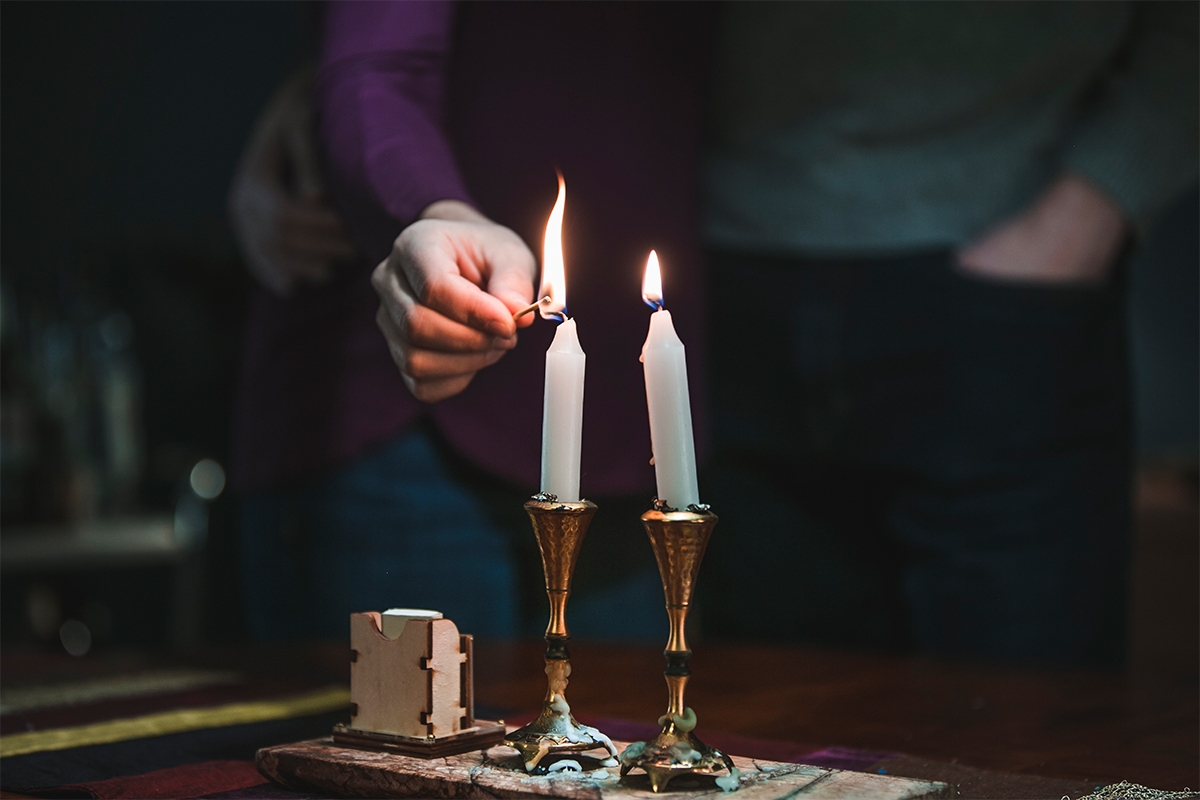My 13-year-old daughter asked if she could have two friends sleep over this upcoming Shabbat. No problem! I was happy to have her friends join us. At this age, I don’t typically check in with the parents and leave it to my teenage daughter to work out the details, but this Shabbat, February 25, is different. This Shabbat, we have been informed by Intelligence and the Counterterrorism Bureau that it has been declared by extremists as a national “Day of Hate.”
Based on extremist postings online, likeminded individuals are inciting one another across the nation to utilize this day to “drop banners, place stickers and flyers and or scrawl graffiti” as well as record any acts of such exploits to be shared online. Most Jewish leaders have already distributed communications to alert their communities in diligence and safety and are collaborating with local law enforcement to increase patrol in Jewish neighborhoods.
So I found myself needing to have a safety consult with two sets of parents regarding everyone’s comfort levels with the girls’ activities and whereabouts during their stay with us. I have never had to have such a discussion with fellow parents before. But this is what modern American Jewish parenting now looks like.
This is not the first time I have written on antisemitism in America and it likely won’t be the last. Jewish hate is in vogue. According to the Anti-Defamation League, attacks on Jewish institutions were up 61%, incidents at K-12 schools were up 106% and on college campuses, 21% in 2021. These are disturbing trends. According to a 2022 survey conducted by ADL, the number of individuals who believe in Jewish tropes has greatly increased from 1 in every 9 Americans in 2019 to 1 in every 5 Americans in 2022. These are very real and sobering statistics. This is the America that Jews are currently navigating. An America where adolescent boys are roughed up near their yeshiva day schools in New York. Where men leaving morning prayers in Los Angeles are shot at. Where video recordings out of Orlando, Florida show individuals chanting “Heil Hitler” and “Sir, do you think you should be put in an oven?” The list of recent verbal and physical attacks across America can go on and on and on.
I have heard mention by people that they are surprised. That they can’t believe it. I can. I am not surprised. To hate Jews, to use us as a political and or socio-economic scapegoat, to perpetuate archaic tropes, is not a new trend. But perhaps what was in recent years clandestine biases with narrow reaching platforms is now overt and acceptable rhetoric that can easily be spread across social media platforms whose policies are permissive, thus creating the kind of surge in antisemitism we are seeing today.
My daughter heard about this national day of hate before I had a chance to tell her of it myself. She asked me very practical and concise questions. What does it mean? What should we do? This is not the first time we have had a discussion like this, and I already have established a basic formulaic approach: a combination of honest transparency coupled with a reinforcement of our own commitment to kindness and acceptance of others. It is important to me as a parent to utilize the hate of others to inspire love and kindness in my own. It is my battle ammunition. We are not the only minority. We are not the only recipients of baseless hate. I can’t think of a better way to unarm those who wish ill upon us than to use them as motivation to do better by others, to practice greater love, compassion and camaraderie among those different from us. I remind my daughter that people have different color skin, different religious beliefs, different sexual orientations, and it is our responsibility to embrace the differences in order to act as soldiers against the kind of hateful rhetoric of extremists’ groups who wish harm upon us and others.
She followed up with additional practicalities. Are we staying home from synagogue this Shabbat? Are we not going to go outside? I understood the fear that motivated these concerns. I also understood that this is precisely the goal of a day of hate. I shook my head no; we are not going to stay home. We are not going to live in fear. But we are going to be cautious. We are going to be attentive. We will walk in groups. We will use main streets. We will look out for one another. And parents will have to have safety discussions with each other. We will have to consult one another about our comfort levels regarding antisemitic threats as naturally as we might consult about any possible food allergies.
Because this is the current climate of American Judaism. This is the reality for Jewish parents. This is what we and our children are up against, fearful discussions at kitchen tables about threat levels and safety precautions.
But when sunset arrives this Friday, when my eldest daughter and I join together to usher in the Shabbat by lighting candles, waving our hands three times and covering our eyes to recite a blessing, we will not think of the day of hate, we will think only of the day of rest.








